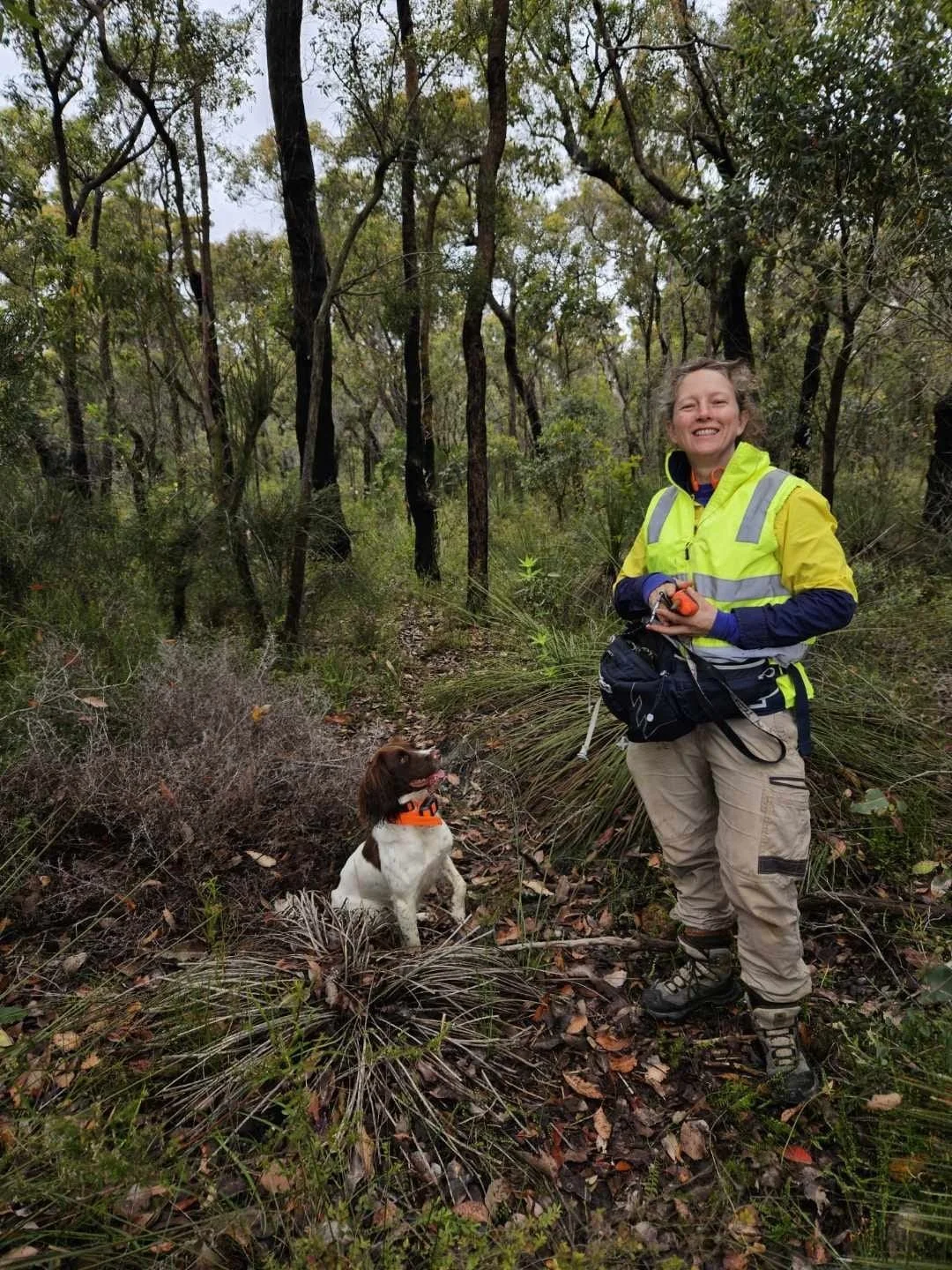
Medical Detection Dog Work
Medical detection dogs can sniff out cancer, covid, and more.
making it a potentially accurate aid to diagnosis for many malignancies, including melanoma, as well as early detection of degenerative and progressive chronic diseases such as cancer or neurodegenerative diseases like Parkinson’s. Canine olfactory detection of disease is also rapid and can be relatively non-invasive - using breath, saliva, and on body detection are often possible. Together these benefits mean that the application of canine detection as a mainstream diagnostic tool for medicine could potentially revolutionise the detection and treatment of these diseases, and is well overdue!
The power of a dogs sense of smell allows them to detect small changes in odour resulting from disease and biochemical changes in the body in response to them. Research has documented the capacity of dogs to detect bladder, breast, colorectal, lung, ovarian, prostate and skin cancers. From Cancer to Covid to Parkinson’s disease, the list of medical conditions that dogs can detect accurately and reliably is rapidly growing! Internationally, research has demonstrated the effectiveness of dogs in accurately and reliably detecting 28 plus diseases and counting. The sensitivity of the dogs nose can exceed that of many tests,
Cancer Detection Pilot
diagnosis where they outperform current methods. We are currently in the process of developing a Cancer Detection Pilot. To operationalise, we are raising funds to set up a mobile certified PC3 lab to facilitate secure, rapid sample analysis by our dogs. Call us for options. We are also actively recruiting clinicians to collaborate with us. If you are a clinician interested in exploring the utility of detection dogs as a diagnostic tool (or you want to convince your oncologist) please contact us!
Our goal is to identify targets where medical detection dogs can reduce invasiveness, decrease cost, or increase the likelihood of early detection. We aim to harness the power of the dog’s nose to train medical detection dogs with high specificity to identify disease for diagnostic use, and evaluate the cost-effectiveness of medical detection dogs for cancer and neuro-generative (e.g. Parkinson’s) disease detection and early identification in Australia, and operationalise national use of detection dogs for
Help us fund the fight against cancer
Our cancer detection pilot has the potential to revolutionize cancer diagnosis, but we need your help to make it happen. By donating to our cause, you can help us fund the necessary research and set up a certified PC3 lab. Your contribution can make a meaningful impact in the fight against cancer. Thank you for your support.
Safety & Welfare
At Detection For Good, we prioritise safety and welfare. We are committed to the welfare of our dogs, our people, our clients, visitors and contractors.
Our dogs comply with behaviour and hygiene requirement to access lab areas without compromising sample integrity and avoid cross contamination
Our work is conducted following rigorous SOPs to maintain sample integrity
Our studies are conducted under animal and human ethics approval
We collaborate with clinicians and diagnostic labs to ensure accurate sample handling and processing
We care about your privacy. Our staff are trained to follow strict protocols to preserve confidentiality
Our training prioritises the mental and physical welfare of our dogs















